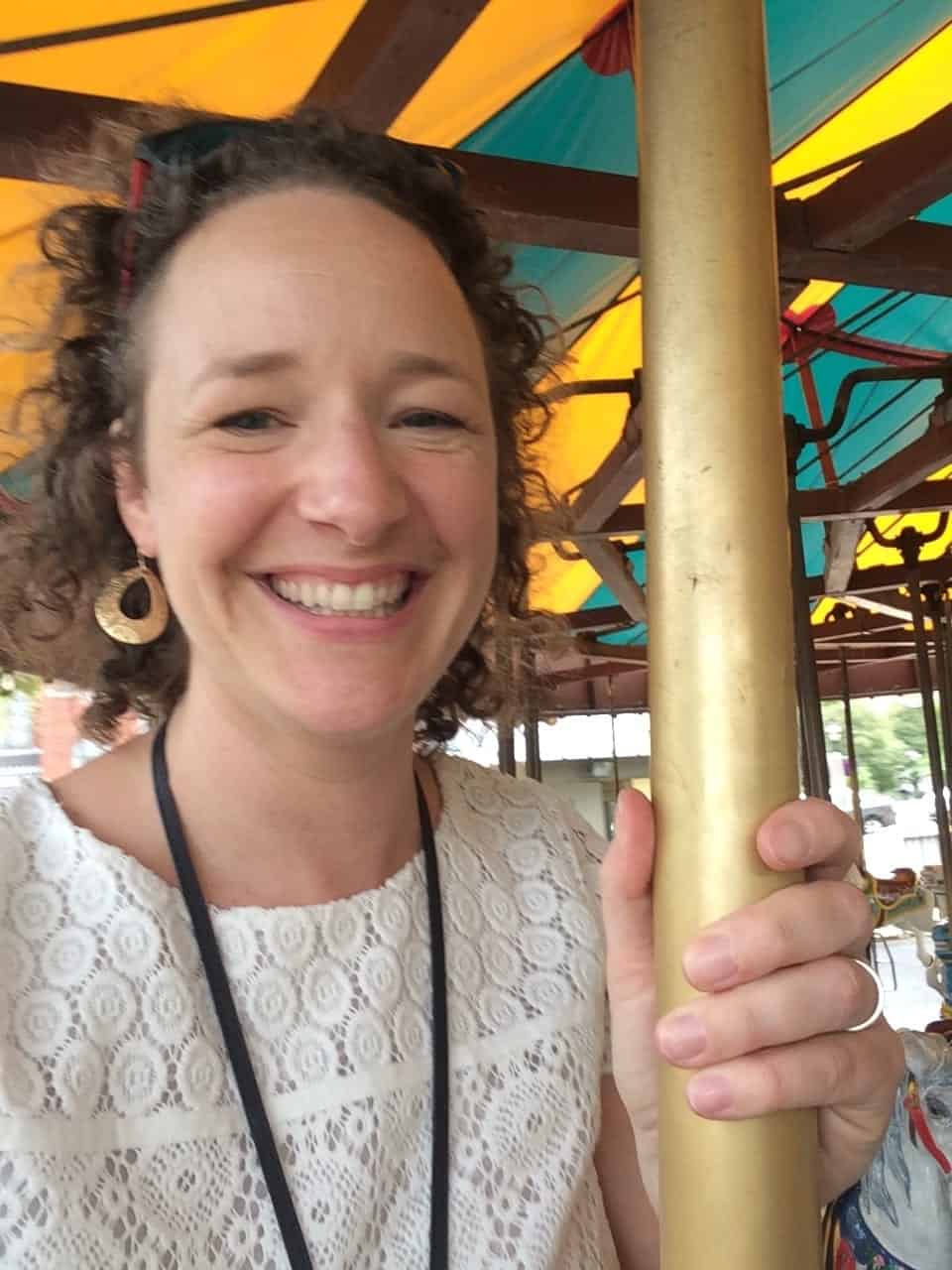Paris is a wonderful city to visit, but a lot of travelers have concerns about how safe it is for tourists.
While we understand your concern, the truth is that this European destination is a beautiful, safe city to visit for the most part.
Even so, our tour guides still have plenty of tips and tricks to help ensure your safety while visiting Paris, and we will cover those details in our post below.
- How Safe is Paris?
- Safe Neighbourhoods of Paris
- Is Paris Safe at Night?
- Are the Trains and Buses Safe to Ride?
- Safety Tips While in Paris
How Safe is Paris?
Paris, like any large city, has varying safety levels across its neighbourhoods.
While it's generally safe for tourists in well-traveled areas like 7th Arrondissement and Le Marais, petty crimes like petty theft and pickpocketing can occur in crowded places.
There have been occasional instances of terrorism and civil unrest in the past, but security measures have been heightened to mitigate such risks.
The last terrorist attack happened in November 2015. But good news for tourists is that these attacks rarely target them.
Even during recent riots and protests, most of the popular areas of the city were left untouched, and travelers reported feeling perfectly safe.
Due to its location in along the Seine River, there is also a possibility of flooding in Paris. Another natural disaster which threatened Paris in recent memory was a heatwave.
The city has a visible police presence in tourist hubs, contributing to a sense of safety.
Paris is also considered good for solo female travelers and solo travelers in general, but everyone needs to be careful because some people might try to trick you, cheat you, or steal from you.
Which Areas of Paris Are Safe?
The capital city of France, like any major city, has neighbourhoods that are generally considered safe for residents and visitors alike.
These areas tend to have a lower crime rate and are popular among both locals and tourists due to their vibrant atmosphere, cultural attractions, and security measures.
When deciding what neighbourhoods to visit during your trip, we recommend starting with these.
The Marais
The Marais is considered safe for tourists, with well-patrolled streets and a welcoming atmosphere.
This historic district offers a delightful blend of old-world charm and trendy boutiques.
Tourists love exploring its narrow, winding streets, historic architecture, and visiting museums like the Picasso Museum.
It's known for its vibrant arts scene, unique shops, and a wide range of dining options.
Saint-Germain-des-Prés
This Left Bank neighbourhood is known for its safety, and visitors can enjoy its historic ambiance without major security concerns.
It is steeped in literary and artistic history, making it a favourite for culture enthusiasts.
Visitors can explore historic cafes, bookstores, and galleries.
It's a charming area for strolling, wandering and relaxing in a secure environment.
Montmartre
Perched on a hill, Montmartre offers stunning views of the city.
It's known for the iconic Sacré-Cœur Basilica, a lively artistic scene, and the historic Moulin Rouge cabaret.
The neighbourhood’s bohemian spirit and artistic heritage make it a must-visit for tourists.
The 4th Arrondissement
This central district includes the Île de la Cité, home to Notre-Dame Cathedral and Sainte-Chapelle.
It's a prime location for exploring Paris's historical heart, with charming streets, vintage shops, and quaint cafes.
Tourists appreciate its walkability and proximity to major landmarks. It's a well-visited and safe part of the city.
The 7th Arrondissement
With the Eiffel Tower as its centrepiece, this area is a magnet for tourists.
Along with the iconic tower, visitors can explore the Musée d'Orsay, Les Invalides, and the charming Rue Cler market street.
The 7th Arrondissement is central and offers a mix of culture, history, and picturesque streets.
It has a strong police presence, making it a secure place for sightseeing and exploring.
While all these are a safe area overall, with so much activity from the local bars, restaurants, shops, and hotels, visitors should keep the safety tips in mind to blend in and watch out for scam artists or pickpockets in this area.
Our best advice is to ignore or say, “no, thank you,” to anyone who tries to stop you or steps in your path, and keep moving.
Is Paris Safe at Night?
Like anywhere, nighttime is more dangerous than daytime in Paris.
When the sun goes down, it is time to be extra mindful and cautious about where you travel and how you behave.
That is not to say that Paris becomes an active crime scene at night (it does not), but rather that the possibility of crime can increase.
Here are some tips to actively follow and remember which will make your night in Paris sweet and safer.
- Before going out at night, plan your itinerary, and let someone know your whereabouts. Choose well-known and reputable establishments for dining and entertainment.
- At night, try to confine your visit to safer neighbourhoods, such as the 7th Arrondissement, Le Marais, or Saint-Germain-des-Prés. Research the safety of your chosen area to make an informed decision.
- Memorize or have easy access to emergency contact numbers, including 112 for general emergencies and 17 for the police.
- Use licensed taxis, ride-sharing services, or public transportation when moving around the city. Avoid unlicensed or unofficial taxis.
- Walk on well-lit, main streets, and avoid shortcuts through dark alleys. Keep a map or navigation app on your phone to avoid getting lost.
- Be aware of your surroundings at all times. Keep headphones at a low volume or use only one earbud to remain alert.
- Carry only what you need for the evening and leave unnecessary items in your hotel safe.
- If possible, travel with friends or fellow travellers, as there is safety in numbers.
- Be vigilant for pickpockets, especially in crowded areas and on public transportation. Keep wallets and smartphones in front pockets or secure bags.
Besides all these measures, if something feels unsafe or uncomfortable, trust your instincts and remove yourself from the situation. Don’t wait for something bad to happen.
Are the Trains and Buses Safe to Ride?
It’s easy to take public transportation in Paris!
Paris has a well-developed metro, tram, bus, and regional train system, known as RER, which offers comprehensive coverage across the city including the airport and suburbs like Versailles.
Metro, trams, and buses are an affordable, fast way to see more of the city, and we highly recommend riding them with safety in mind.
The best way to pay for travel on the Paris metro system is by using rechargeable travel pass known as Navigo Easy Pass.
You can use this card to pay for multiple types of transportation: metros, buses, trams and Réseau Express Régional (RER).
However, the problem with both metro and buses is that they can become very crowded, especially during rush hour.
This is the time when many thieves focus on train stations and buses and it is also when most pickpocketing incidences can happen.
The best way to prevent yourself from such incidences is to keep a watch on your belongings and your surroundings.
Keep your wallet or mobile phone safe and don't leave them in your pocket where they can be easily snatched.
For those who are concerned, we recommend considering taxis or ride share services like Uber and Lyft during rush hour periods in order to avoid any issues.
If you take care of these tips, public transportation will make your Paris trip much easier and fun.
Tips to Stay Safe While Visiting Paris
- Stay alert. Always be mindful of who is around you and use all your senses. When enjoying our fabulous nightlife, moderate your alcohol or drug consumption so that you can stay aware of potential threats.
- Travel with others when you can. Walking with a friend or group is always a good idea. If you are traveling solo, consider exploring Paris on a group tour. Always follow travel advisories.
- Take a rideshare or taxi at night. Sometimes it is worth the peace of mind to spend money on a safe ride to hotel. In night public transportation can become gloomy so it’s better to avoid using them in nighttime.
- Keep your bags and valuables secure. This means bags zipped, snapped, and across your shoulder. Avoid putting your wallet in any pocket where it can be seen and stolen.
- Avoid bad neighbourhoods. Like every city, Paris has both good and bad neighborhoods. Its better to keep yourself away from some potentially dangerous neighbourhoods like La Goutte d'Or (18th Arrondissement), Barbès-Rochechouart, The Gare du Nord and Gare de l’Est area (10th arrondissement) and Stalingrad.
- Avoid Provocation. Stay away from those who try to become over friendly or provoke you. You can end up paying heavy bills for your stranger friends.
- Avoid Public Demonstrations: Be aware of any planned protests or demonstrations and avoid getting caught up in them. These events can sometimes lead to civil unrest.
Apart from these tips, you also need to avoid scamsters who can dupe you with these common scams.
- The String Bracelet Scam. A person may approach you, offer to make you a friendship bracelet or Trinkets, and then demand an exorbitant fee for it. They can be quite persistent.
- The Shell Game. You'll encounter people on the streets playing a game with shells or cards, claiming that you can easily win money. In reality, it's rigged, and you'll likely lose.
- Fake Petitions. Scammers might ask you to sign a petition for a good cause while someone else pickpockets you or distracts you. Be cautious when approached by strangers with clipboards.
- The Gold Ring Scam. A scammer will approach you and claim to have found a gold ring on the ground. They'll offer it to you or ask for money in exchange for it. The ring is typically worthless, and this is a ploy to get money from tourists.
- Taxi Overcharging. Some unscrupulous taxi drivers may take longer routes or overcharge tourists who are unfamiliar with the city.
Remember, if you stay alert and mindful of potential danger, you are unlikely to run into any problems while visiting Paris.
RELATED POSTS:
If you found this post helpful, here are a few other resources to check out:






